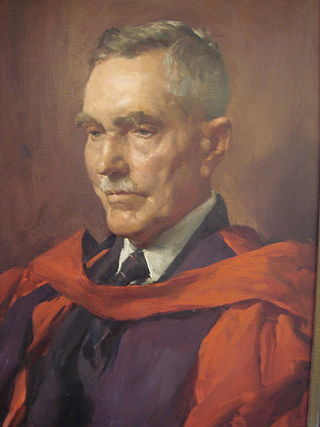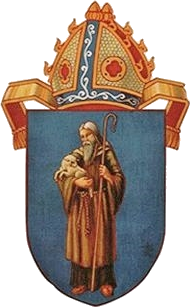The Anglican Board of Mission - Australia (ABM), formerly Australasian Board of Missions and Australian Board of Missions, is the national mission agency of the Anglican Church of Australia. In its earliest form, it was established in 1850.
The Anglican Board of Mission - Australia (ABM), formerly Australasian Board of Missions and Australian Board of Missions, is the national mission agency of the Anglican Church of Australia. In its earliest form, it was established in 1850.
The Church of the Province of New Zealand was not formed until 1858. In 1850, George Selwyn, the Bishop of New Zealand, approached his fellow Australasian bishops for funds to buy a boat for evangelisation of the islands of Melanesia, which then formed part of his diocese by virtue of a clerical error in the letters patent. [1] [2] That missionary endeavour became the Melanesian Mission, but also led to the establishment of the Australasian Board of Missions. [1] [3]
In 1872 (by which time New Zealand was a separate province) the Australasian Board of Missions was constituted as a board of the church by a canon of General Synod. [1] At that point the board changed its name to the Australian Board of Missions. [4] [5] It was only in 1872 that an administrative structure was created, with a general secretary. [6]
The board celebrated its jubilee in 1900, at the consecration of Gilbert White as Bishop of Carpentaria at St Andrew's Cathedral, Sydney. [3] The board was restructured in 1916, which led to the creation of an executive chairman position in place of the former general secretary; the Rev John Jones, general secretary since 1912, became the first chairman. [7] Many chairmen (and the renamed national directors) were former diocesan bishops, including George Cranswick (1942–49), Donald Shearman (1971–73), Ken Mason (1983–93), and Geoffrey Smith (2000-05). Another notable chairman was the Rev Frank Coaldrake (1957–70), a prominent pacifist during WWII and who, in 1970, was elected Archbishop of Brisbane but died before being consecrated. [8]
In 1953 the board created a department of co-operatives and appointed the Christian Socialist the Rev Alf Clint as director; Clint had previously established a series of co-operatives in Papua. [9] At the time, the board still had a number of Aboriginal missions, and Clint travelled around them, establishing co-operatives at Lockhart River Mission (1954), Moa Island, Torres Strait (1956), and Cabbage Tree Island (1959). [10] In 1957 Fr John Hope of Christ Church St Laurence gave Clint a house, Tranby, for his work with Aboriginals. [11] Now (2021) called Tranby National Indigenous Adult Education and Training, Tranby is still run by the Co-operative for Aborigines Limited, founded by Clint. [12] By 1959 the Lockhart River co-operative was bankrupt due to the collapse of the trochus shell market. [13] In 1960 the Rt Rev John Matthews was elected Bishop of Carpentaria; he considered Clint to be a destabilizing influence and, in 1961, banned him from entry to Anglican missions in the diocese. [14] That led the board in 1962 to replace its co-operative department with an autonomous body, Co-operative for Aborigines Ltd, of which Clint was the general secretary. [15]
The board was renamed the Anglican Board of Mission – Australia in 1995. [16]
As of 2021 [update] , its focus is on three programmes: [17]
The Board also issues emergency appeals. [17]
The position of chairman was renamed national director in 1993.
The national director was renamed the executive director in 2005.

Sir John Burton Cleland CBE was a renowned Australian naturalist, microbiologist, mycologist and ornithologist. He was Professor of Pathology at the University of Adelaide and was consulted on high-level police inquiries, such as the famous Taman Shud Case in 1948 and later. He also studied the transmission of dengue virus by the mosquito Stegomyia fasciata.

Lockhart River is a town in the Aboriginal Shire of Lockhart River and a coastal locality split between the Aboriginal Shire of Lockhart River and the Shire of Cook, on the Cape York Peninsula in Queensland, Australia. In the 2016 census, Lockhart River had a population of 724 people.

Moa Island, also called Banks Island, is an island of the Torres Strait Islands archipelago that is located 40 kilometres (25 mi) north of Thursday Island in the Banks Channel of Torres Strait, Queensland, Australia. It is also a locality within the Torres Strait Island Region local government area. This island is the largest within the "Near Western" group. It has two towns, Kubin on the south-west coast and St Pauls on the east coast, which are connected by bitumen and a gravel road. In the 2016 census, Moa Island had a population of 448 people.
Gerard Kennedy Tucker OBE (18 February 1885 – 24 May 1974, sometimes referred to as G. Kennedy Tucker, was an Anglican priest in Melbourne, Australia. Tucker founded the Brotherhood of St Laurence in 1930 and the forerunner of Oxfam Australia in 1953.
Samuel Edward Marsden was an Anglican bishop. He was the first Anglican Bishop of Bathurst.

Nathaniel Dawes was an Anglican bishop in Australia. He was the first Bishop of Rockhampton in Queensland, from 1892 to 1909. He was the first bishop to be consecrated in Australia.
Sir Philip Nigel Warrington Strong served as the fourth Bishop of New Guinea from 1936 to 1962 and the fifth Anglican Archbishop of Brisbane from 1962 to 1970, also serving as primate of the Church of England in Australia from 1966.

Arthur Nutter Thomas, commonly referred to as Dr Nutter Thomas or A. Nutter Thomas, was the Anglican Bishop of Adelaide, South Australia, from 1906 to 1940.

Henry Archdall Langley was an influential Irish-born Anglican priest, of considerable physical strength, who migrated to Australia in 1853, and became the first Bishop of Bendigo from 1902 until his death in 1906.

Tranby is a heritage-listed former residence and now adult education centre for Aboriginal Australians in Sydney, commonly known as Tranby Aboriginal College.
Hussey Burgh Macartney was the Dean of Melbourne from 1852 until his death.

The Archbishop of Brisbane is the diocesan bishop of the Anglican Diocese of Brisbane, Australia, and ex officio metropolitan bishop of the ecclesiastical Province of Queensland.
St John's College, Morpeth, known colloquially as the "Poor Man's College, Armidale", was opened in Armidale in 1898 as a theological college to train clergy to serve in the Church of England in Australia. It moved to Morpeth in 1926 and closed in 2006.
Rev. John Brown Gribble FRGS was an Australian minister of religion, noted for his missionary work among Aboriginal people in New South Wales, Western Australia and Queensland. His appointment in Western Australia was cancelled within a year due to hostility from squatters and others who had Aboriginal employees.
Baptist Mission Australia, formerly Global Interaction, the Australian Baptist Missionary Society, and originally the Australian Baptist Foreign Mission, is a Christian missionary society founded by Baptists in Australia in 1864. The national office is in Melbourne.
Christopher McLeod is an Australian bishop in the Anglican Church of Australia. He has been an assistant bishop in the Anglican Diocese of Adelaide, as the Bishop for Aboriginal Ministry, since April 2015. McLeod is the second Australian National Aboriginal Bishop, and is only the third Aboriginal person to be a bishop in Australia. He has also been the dean of St Peter's Cathedral, Adelaide, since 31 October 2021.
Frank William Coaldrake was an Australian priest in the Church of England in Australia. A noted pacifist during WWII, Coaldrake was subsequently an Anglican missionary in Japan. He was the Chairman of the Australian Board of Missions when, in 1970, he was elected Archbishop of Brisbane, but he died before being consecrated.
The Peacemaker was a pacifist newspaper based in Melbourne, Australia. It was published from 1939 to 1971.
The Church Standard was a national Anglican newspaper based in Sydney, Australia, published from 1912 to 1952.
William Alfred Clint was an Australian priest in the Church of England in Australia. He established a number of Aboriginal co-operatives on behalf of the Australian Board of Missions, including Tranby Aboriginal College.